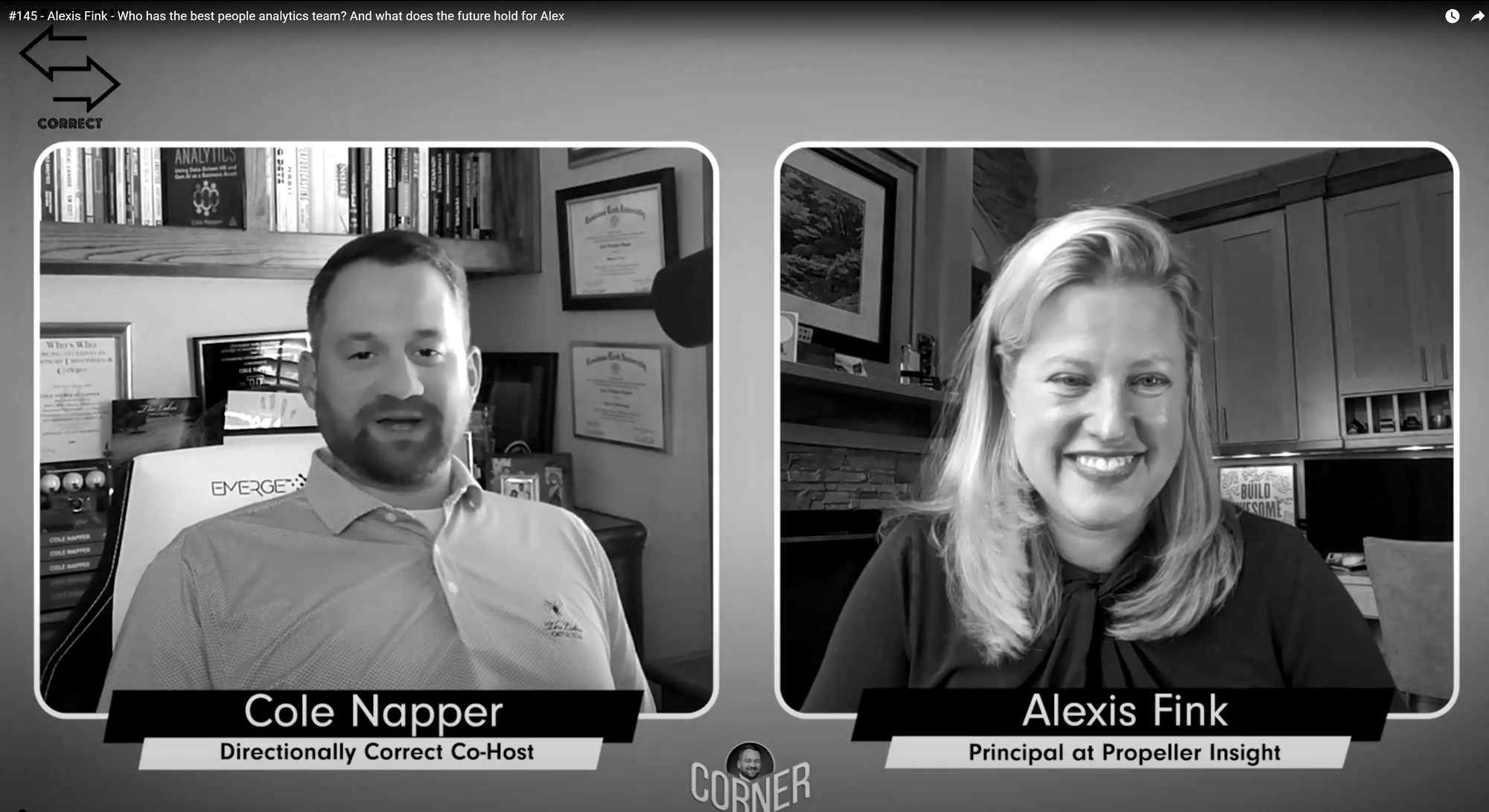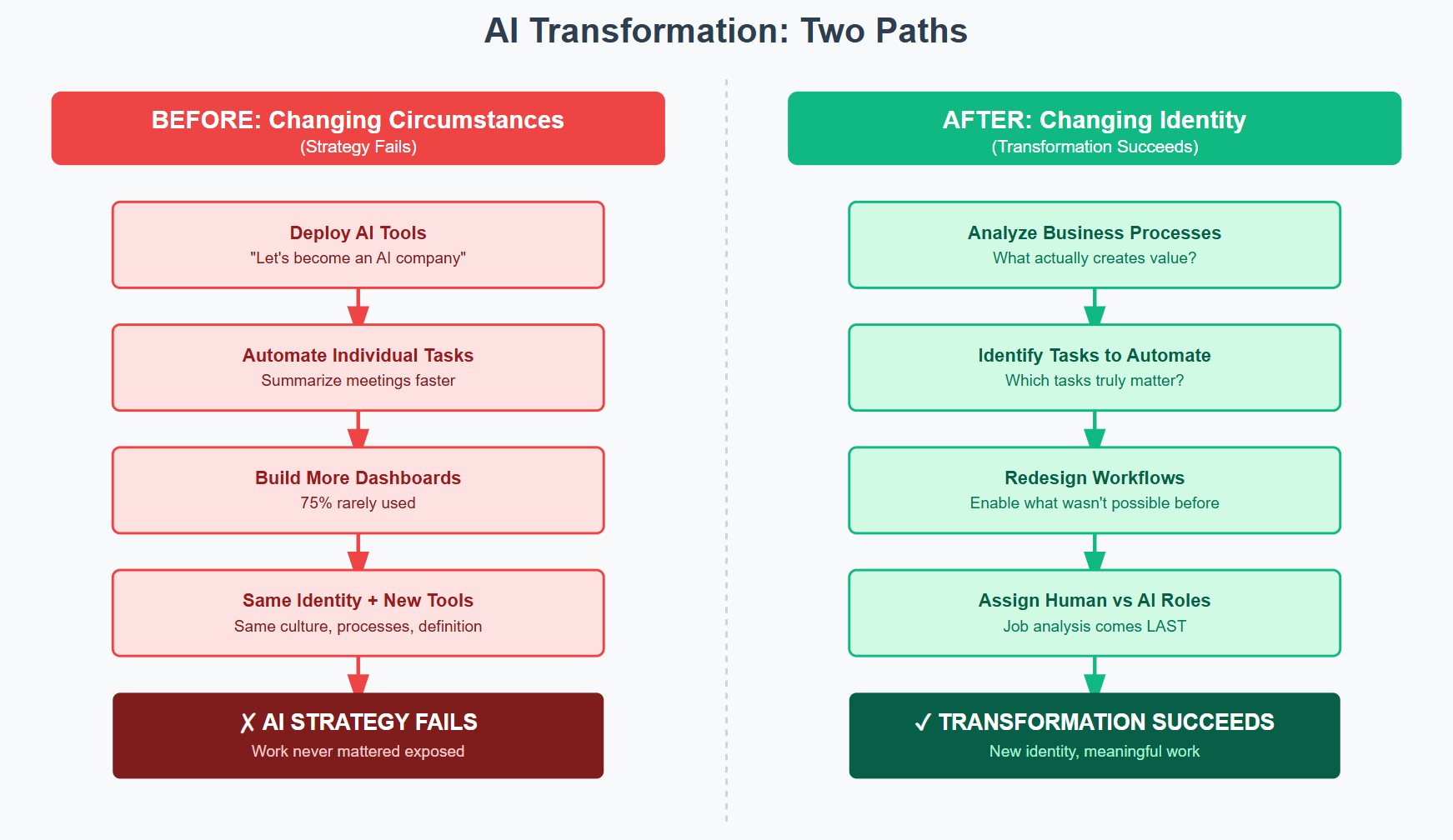Directionally Correct with Alexis Fink: The Truth About Bullshit Jobs and AI

What Happens When AI Does Your Job in Minutes
It's no secret that I'm a fan of Cole Napper and the Directionally Correct podcast. I bought Cole's book People Analytics on Kindle, as I like the highlighting ability. (If you buy from the publisher KoganPage, using code HELLO25, you can get both paperback & ebook bundle for only $29.24 )
Each Sunday, the Podcast brings on amazing guests who dig into the real challenges facing people analytics and workforce strategy. This week's episode with Alexis Fink was no exception—Cole Knapper and Alexis tackled an uncomfortable truth: AI isn't just changing work. It's exposing which work never mattered in the first place.
The Problem: The BS Economy
Alexis described what anthropologist David Graeber called "bullshit jobs"—roles where you go home feeling like you should either return your paycheck or demand triple pay for the frustration. Updating status reports nobody reads. Matching fonts in PowerPoint. Moving things around without creating anything real. Just like the movie "Full Time" in my recent blog post The square we stand in.
LLMs can now automate much of this type of work in minutes. Canva fixes slides. AI spits out annual reports that used to take months. As Alexis put it:
"Summarizing meeting notes is not what your company does. So helping people summarize their meetings is not actually going to translate to revenue for you, probably."
Here's what makes this uncomfortable: this is the first time automation has come for the button-down shirt crowd. The panic isn't just about losing jobs. It's about realizing the work never mattered.
Alexis audited dashboards once and found 75% had fewer than five lifetime visits. Teams spent 30-70 hours building something almost nobody used. This resonates—a fair number of dashboards created are underutilized, built at one executive's request, and underutilized, built for one executive's request, then abandoned.
Her point about the "tyranny of dashboards" hit home. A couple of years ago, I inherited over 400 dashboards in the background screening space. We have a tool at work that analyzes how frequently Tableau dashboards are utilized. I added to that by using Alteryx and Tableau Server API to identify workbooks that had never been opened once since creation. We were able to eliminate a very significant portion of those dashboards, bringing the quantity to a much more manageable number.
Why Most AI Strategies Fail
Alexis says most companies are throwing spaghetti at a wall—deploying ChatGPT or Copilot to everyone and hoping something sticks. But individual productivity gains don't automatically translate to organizational transformation.
Someone told Alexis they'd rework all their job analyses to show how AI would change jobs. She told them to stop. That's backwards.
Start with tasks. Which can be automated? Then look at business processes—how can you rework entire processes to be more efficient or enable something impossible before? Only after understanding the new process do you decide what humans should do versus machines. Job analysis comes last, not first.

Companies automate individual tasks hoping it adds up to transformation. It doesn't. Transformation isn't doing the same things faster. It's becoming something different.
A Personal Example
Alexis didn't just change jobs when she left her VP role at Meta. She changed her approach to work itself. After watching a CHRO friend have a stroke during the job and her surgeon uncle have a stroke two years before retirement, she decided to make a change on her own terms.
Now she runs the i4CP people analytics board, teaches at USC, writes, and helps organizations with AI strategy. As she explained: "There's a difference between pleasure and happiness, right? I'm not really into the pedicure theory of how to have a good time. I would rather...weed my flower bed that had been taken over. And that was really gratifying to me."
What This Means for Everyone
The conversation raised questions that apply broadly: are you changing circumstances or changing something deeper? When AI removes tasks that filled your day, what's left?
For individuals, this might mean asking what skills and work truly create value versus what just fills time. For organizations, it means understanding which processes actually drive results versus which exist because they've always existed.
AI is exposing what never created value. You can resist this reality, or you can use it as an opportunity to focus on work that actually matters—whether you're an individual contributor, a manager, or running a business.
The key isn't fighting automation. It's being intentional about what comes next.
Listen to the full episode of Directionally Correct to hear more about people analytics, the SIOP Leading Edge Consortium, and why IO psychology matters more than ever.

